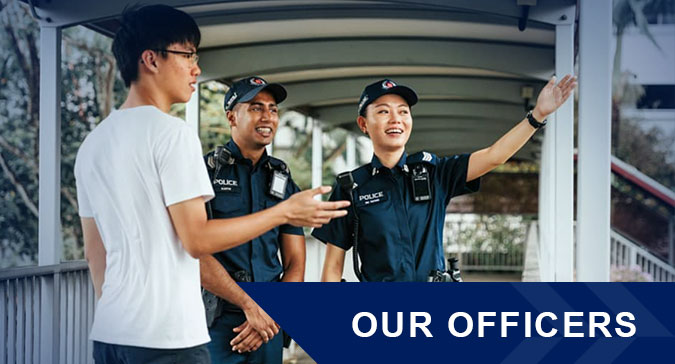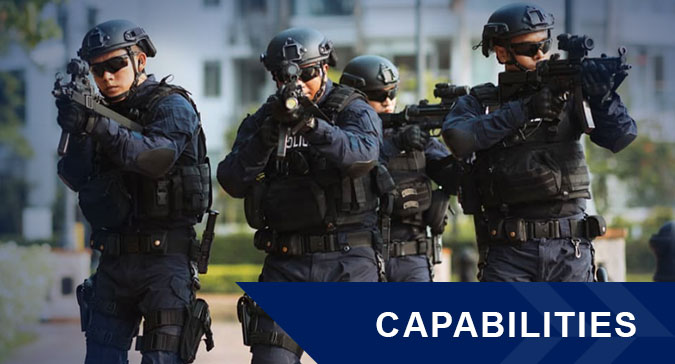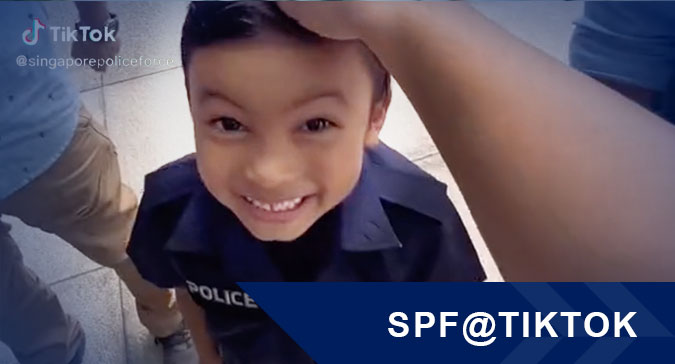Honoured to do their part, and more! These dedicated SPF Honorary Aides-de-Camp serve as the President’s aides, on top of their regular duties as officers!
By: Christabelle Lim
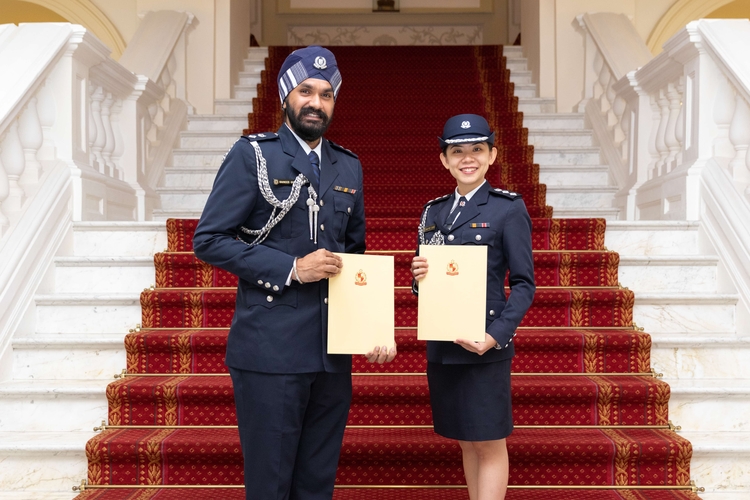
Who are the President’s Aides
Aides-de-Camp (ADCs) and Honorary ADCs (HADCs) comprises officers from the Singapore Police Force (SPF), Singapore Civil Defence Force (SCDF) and the Singapore Armed Forces (SAF). ADCs are a full-time role appointed by the President’s Office for a term lasting around two years, while HADCs serve a three-year appointment, clocking a minimum of 60 hours a year for the first two years, on top of their professional work. Together, they coordinate, plan and implement state functions and events attended by the President.
Police Life speaks with Deputy Superintendent of Police (DSP) Ravinder Singh and Superintendent (Supt) Ong Ruo Cheng on what it takes to serve the highest office in the land!
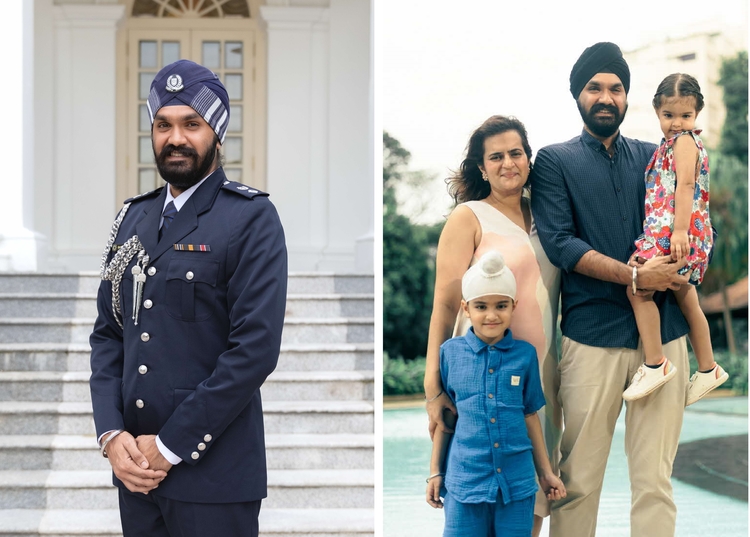
Can you tell us a bit about yourself?
I started as an Investigation Officer (IO) in 2014 at Ang Mo Kio Division for about two years and was a Patrol Team Leader at Bedok Division for two years. I then assumed the post of Officer-in-charge, Crime Strike Force, in Clementi Division in 2018 to 2022. I’m currently a Senior Investigation Officer with the Special Investigation Section, Criminal Investigation Department.
On a personal note, I have two adorable children, aged two and five. My wife, who’s my pillar of support, works at the Ministry of Home Affairs. And during my free time, I enjoy playing soccer and floorball.
When did you first become an HADC, and what made you apply?
I was first appointed an HADC in 2017. My colleague had shared his experience as an HADC with me and I was intrigued by the unique role HADCs play to ensure the success of events hosted by the President’s Office.
What does being an HADC mean to you?
It has allowed me to serve the public in a wider context as a uniformed personnel in the SPF. As ambassadors of the President’s Office, I take pride in ensuring that every guest and visitor to the Istana has a pleasant experience.
How does your Police training help in your role as an HADC?
Being a Police officer requires me to be detail-oriented, meticulous and able to adapt to different scenarios. My training has allowed me to think on my feet and find solutions to any hiccups that may come up during an event!
What was the most memorable event you served as an HADC?
The courtesy call by Vice-President (VP) Kamala Harris of the United States of America at the Istana in August 2021 was very memorable! I was able to witness the interactions between VP Harris and President Halimah Yacob and contribute to the successful hosting of VP Harris at the Istana.
How do you balance your policing duties with HADC duties?
Good time management and supportive bosses are key – the understanding and support of my supervisors have allowed me to balance both my work and HADC commitments effectively.
What do you love most about being an HADC?
I love the camaraderie and spirit of officers drawn from the various uniformed services coming together to serve one common purpose. I’m also very grateful for the friendships I’ve made with fellow officers from the SPF, SCDF and SAF over the years.
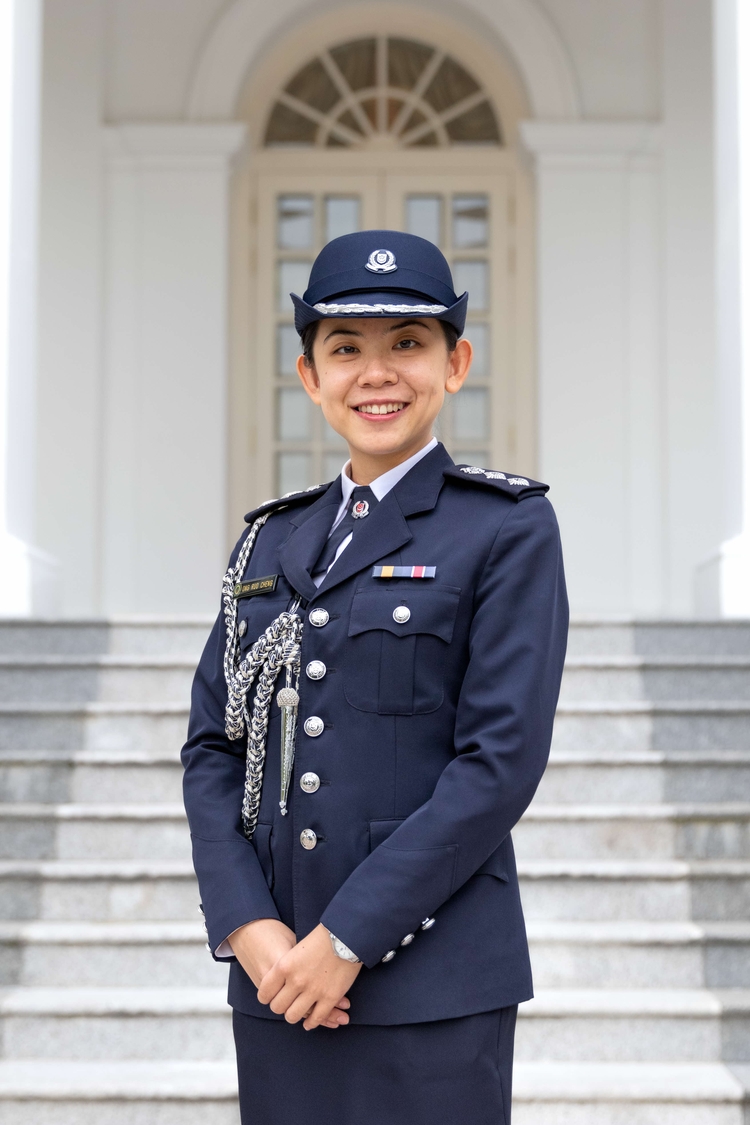
Can you share more about yourself and what motivates you?
I’ve been an Operations Officer at Yishun South Neighbourhood Police Centre (NPC) since July 2021. I first joined the SPF in 2012. After my first posting as an IO at Tanglin Division, I became a Patrol Team Leader at Central Division. I then went to the Major Security Events Division (MSED) of the Operations Department where I conducted security and contingency planning for major events.
You first started as an ADC; how did you begin your ADC journey?
After close to three years at MSED, I was nominated for the selection process for the full-time ADC role, which included a panel interview and an internship at the President’s Office. After researching the role, I was intrigued. At MSED, I’d always viewed events from a security perspective, but the ADC role would challenge me to take on many other considerations such as protocol, diplomacy and guest experience. I assumed the role of full-time ADC in April 2019 before becoming an HADC in July 2021.
Can you give an insight into what it was like being an ADC from 2020 to 2022, when strict safe managements measures for COVID-19 were in place?
Prior to this period, there were many events that the President graced; sometimes up to five a day! With COVID-19, it was a challenge to transit from physical events to virtual and later hybrid events. I’m sure many people can relate to this.
For virtual programmes with the President as the Guest of Honour, we had to ensure that the event ran according to schedule, and while we’d call into the event from the Istana, it was difficult to maintain control of the event when we weren’t physically present! So, a lot of contingency planning had to done, with many creative solutions implemented to solve problems and make virtual events meaningful for all the participants.
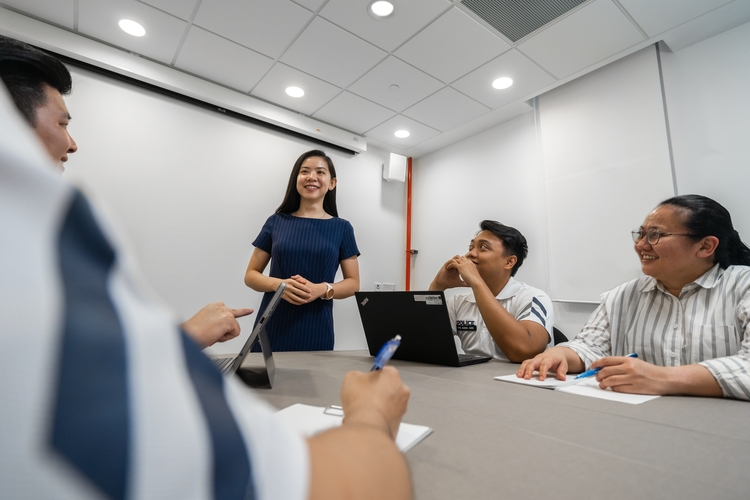
How has your experience as a Police officer helped with your role as an ADC and HADC?
My policing experience, both on the frontlines and as a staff officer, has sharpened my people skills and creative problem-solving abilities while taking into consideration the needs of various stakeholders. When there are competing interests, we always try to negotiate for a win-win situation.
What was your most memorable experience as an ADC and HADC?
It would have to be the State Visit to Germany in 2019. (Editor’s note: Supt Ong was the first female ADC to staff the President on a State Visit!) It allowed me to work closely with counterparts from the Ministry of Foreign Affairs and various government and business agencies from Germany, which was a very enriching experience.
What lesson has your time as an HADC taught you that you can apply in your work as an officer?
Working with diverse stakeholders has exposed me to varied organisational practices and a deeper understanding of their role in the public and private sectors. Now, when I encounter issues on the ground, I’m able to look at them from a wider and more balanced point of view. There’s a common nexus between the security and socio-economic and financial sectors. Policing is not just about detecting crime; it’s also about working with other organisations on upstream crime prevention and deterrence too.
What’s one common misconception that people have about being an HADC or ADC?
It’s not all glitz and glamour being in the No. 5 uniform! It can get quite hot, especially during outdoor events at the Istana, and running across the Istana lawn in court shoes all day is no joke!
But jokes aside, there are many rehearsals and much preparatory work for every event to ensure its success. For instance, the preparation needed for a 30-minute ceremony can be four times as long. The effort my fellow HADCs put in behind the scenes is often unseen, but it reflects their deep commitment and honour to serve the President’s Office.


